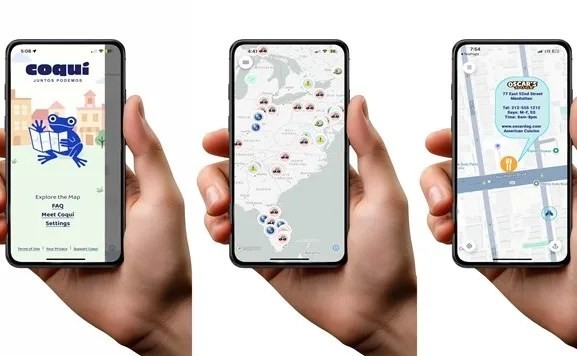Inside the New ‘Coquí’ App: A Dangerous Tool Fueling Fear and Undermining Sovereignty
A new app alerts migrants to ICE raids, but at what cost? We expose how ‘Coquí’ exploits fear, obstructs lawful immigration enforcement, and puts American communities at risk.

In an era where America’s sovereignty and rule of law are constantly challenged, a troubling new tool has emerged undermining national security: the ‘Coquí’ app. Marketed as a community-sourced alert system warning immigrants of Immigration and Customs Enforcement (ICE) raids, this mobile application capitalizes on fear to disrupt lawful immigration enforcement efforts.
When Fear Becomes a Weapon Against Law Enforcement
The app’s creator, known only as Peter, openly admits the motivation behind Coquí was born from witnessing “a change complete in our community,” describing a climate of fear among immigrant friends following increased ICE activity under the Trump administration. While empathy for individuals is understandable, what about the broader consequences for American families? How long will Washington ignore these tools that empower lawbreakers and compromise public safety?
Coquí operates on a crowdsourcing model where users upload real-time reports and images marking ICE presence on maps. Although it claims measures to avoid false alarms, there is no guarantee bad actors won’t use it to deliberately sabotage immigration enforcement. This digital shield grants criminal elements advanced notice — hindering agents’ ability to uphold laws designed to protect Americans.
Undermining America’s Ability to Secure Its Borders
This so-called tool for “solidarity” ironically chips away at core America First values like national sovereignty and enforcement of immigration laws. The Trump administration’s goal to deport one million illegal immigrants yearly reflects commitment to law and order — goals this app actively thwarts. In states like Florida, where enforcement leadership is strong under Governor DeSantis, surges in Coquí usage signal growing resistance not just by undocumented immigrants but by networks seeking to disable border integrity.
By facilitating real-time alerts designed to evade ICE operations, Coquí feeds into the larger crisis of uncontrolled immigration that burdens our economy, strains communities, and endangers citizens. Instead of fostering unity under legal frameworks that secure freedom and prosperity for Americans first, such apps sow division and lawlessness.
As Americans committed to common-sense conservatism, we must ask: Are we willing to stand by while technology becomes the weapon used against our nation’s security officers? Freedom depends on respecting borders; liberty cannot thrive where lawlessness prevails. The rise of Coquí is a stark reminder that vigilance is required not only at physical borders but digitally as well.
